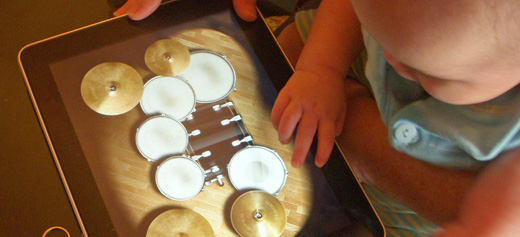Gotham Diary:
Compleat
The missing package is either a Borsalino cap that I bought at a clearance sale from Hartford & York, or the complete works of Wolfgang Amadé Mozart, for I forget how much money. Under $200, though! Jillions of discs at practically pennies per! Will the performances (or the recordings) be terrible? Who knows? I don’t much care. I bought the set pretty much for its index. I know almost everything in Mozart’s catalogue that’s at all famous, and I know it pretty well. But there’s lots of stuff that isn’t well known. Not that we’re talking about hidden diamonds. Mozart wrote a lot of okay-rate music that is fairly forgettable. He wrote less and less of it as he grew older, and after 1783 he wrote nothing that isn’t worth listening to. But he was no child genius as a composer. (That said, I’ve always found the six minuets that are now catalogued as K 61 — I think; it used to be 65 — to be especially delightful. Mozart wrote them on the eve of his thirteenth birthday. They’re no more routine than the great Clarinet Quintet, from the other end of Mozart’s life.)
Buying this complete set of Mozart required cutting through a web of taboos. Way back in — when was it, 1991? the bicentennial of Mozart’s death? Maybe it was long before that, when LPs were still the default — the prestigious Philips label (part of the Polygram complex that also owns prestigious labels Deutsche Gramophon and “English Decca”) issued a series of boxed sets, numbered as volumes, in a “Mozart Edition.” I do not believe that it was intended to be exactly comprehensive, but I may be wrong about that. If someone had given it to me, I don’t know what I’d have done with it. The main thing wasn’t the quality of the performances, which was excellent but not really to my taste, but the packaging. Jewel boxes take up so much room! If the Edition were to come out today, it would arrive in the same sort of box as my cheapo set (I’m guessing), with each CD in a sleeve of some kind. I can certainly live with that. A treat that I still haven’t tired of is a Complete Brahms (Deutsche Gramophon). It sits atop my vestigial stereo system, a cube with Brahms on every face.
As I write this, I’m listening to Van Cliburn’s Cold War recording of the Tchaikovsky Piano Concerto, the one that was So Famous that nobody else recorded it for ages. Again, I’ll beg your pardon regarding the details. The Tchaikovsky Piano Concerto has endowed me with one of the many entries in my Modern Jackass portfolio. Long ago, when I had just enough knowledge to be dangerous, I castigated Tchaikovsky for not developing the magnificent opening theme of the concerto. Magnificent yes; opening theme, no: it’s a classic introduction, or what snazzy music writers about Haydn and Mozart’s opening gambits might now and then call a “propyleia.” Meaning a porch. But it was fashionable to dump on Tchaikovsky in the late Sixties and early Seventies. Which turned out to be not all bad: I had to discover for myself a composer who had become so cliché-popular that nobody really heard him anymore. I still hear André Previn’s recording of Sleeping Beauty as a revelation of how incredibly gorgeous music can be, without a hair out of place.
As I’ve gotten older, all my time-machine speculations have come to involve Mozart. If I could go back in time, I’d check out one of Mozart’s extravagant costume balls — he had a flat with a ballroom for a while — and ask the guests what they thought of their host. People like to think of Mozart as a droll wraith, shyly seeking a quiet corner in which to dash off the odd Requiem. Nothing could be further &c. The man went in for loud clothes and big jewels. He made so much money, for a few years at least, that he could carry on like an aristocrat, and quite alongside the brilliance of his music there is the cunning of his parody of patrons. I’d like to know more about that. I don’t think that I’d have anything to say to Mozart himself, unless I thought that a request for three more string quintets might bear fruit.
If the time machine worked the other way, of course, I’d drag Mozart up to my place in Yorkville, where I’d worry about which was more likely to give him a heart attack, the taxis down in the street or the Brahms on the Nano. What am I saying? Haydn’s London Symphonies would be shocking enough. You know, of course, that the people in London asked Mozart first, right?

